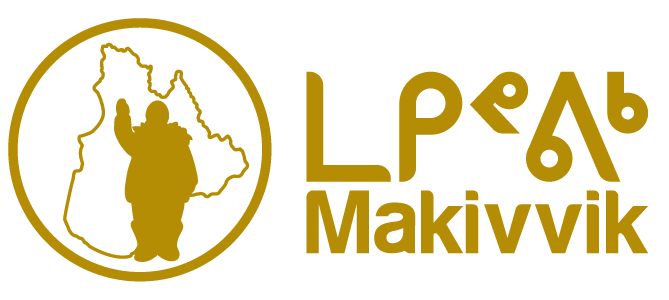By Stephen Hendrie
On the Monday morning following his landslide re-election as Makivvik President, Pita Aatami spoke to me from the head office in Kuujjuaq. It was business as usual, with his same Executive Assistant, colleagues, emails, voicemails, appointments, and a big To-Do List. The first on the list was Self-Determination.
“This is something that has been very important in my heart for many, many years now, wanting to make sure that governments change their philosophy and their policies towards aboriginal people.” During the course of the 30-minute interview he painted a picture that the time of outsiders – ranging from former kings of England, to more recent Canadian government officials – dictating how Inuit should live in Nunavik, is over. “Enough is enough,” Pita said repeatedly during the interview.
“When I signed that Political Accord on December 20th, 2023, in Montreal with the Premier of Quebec, I made it very clear in the press conference that we want to have control of our own home, of our own destiny, but doing it in partnership with governments.”

For Pita it’s been a consistent message his whole political career. Rewind to 1995 on the occasion of the 20th anniversary of the James Bay and Northern Quebec Agreement (JBNQA). Pita was Makivvik Treasurer. I asked him at the time what influenced him to become a political leader. “I didn’t like the idea of somebody coming up to my community and wanting to do basically anything they wanted to do,” he said. “That really convinced me that I should go into politics, and made sure that my fellow Inuit were not just run by people from outside of the community.”
He remembers attending public meetings in Kuujjuaq relating to the James Bay hydro project. He was very young at the time, 14 or 15 years old in the early 1970s. “People used to look at me. What the hell is this kid doing in these meetings?” But he prepared his political future carefully by going through the steps needed to eventually becoming Makivvik President.
They included being a member of the recreation committee, recreation president, municipal councillor, Landholding Director and then President, and eventually being elected to the Makivvik Board of Directors for Kuujjuaq in 1987. He was elected Makivvik Treasurer in 1993, and became Makivvik President for the first time in 1998, until Jobie Tukkiapik won the presidency from 2012 – 2018. Charlie Watt came back for a three-year term from 2018-2021, and then Pita returned to lead the organization once again.
During the years he was away Pita was President of Air Inuit, though he says he kept abreast of the political issues in Nunavik. “I was still helping behind the scenes. For example, I was still always lobbying for the dog slaughter that happened. I messaged with Jobie Tukkiapik and Charlie Watt and said, ‘can you fight for this’.”

Pita says he spent election day on February 1, 2024, at home in Kuujjuaq with his family. By early evening the results were posted on the Makivvik website. He had won over 70% of the votes versus his two opponents – Harry Tulugak with 15%, and Suzy Kauki with 13%.
Other items on his electoral To-Do list include sorting out the Youth Protection issue so that Inuit children are no longer removed from the region. Renegotiating the Sanarrutik Agreement, scheduled to end in 2027, is also on the agenda. Working more closely with the Landholding Corporations of Nunavik is one of his electoral promises. Meanwhile Makivvik has made great strides in assisting Avataq with a key plank of their mandate – protecting Inuit language and culture – with a $36-million agreement for the implementation of an Inuktitut language revitalization project. Makivvik also has signed an agreement with Avataq to take over the Nunavik Teas, a win-win for both organizations says Pita. “If we make money with this, 100% of the money will be given back to Avataq.”
Back in 1995 when Pita was Treasurer, the Makivvik Beneficiaries’ Equity was $134 million and Accumulated Donations almost $40 million. Today the Beneficiaries’ Equity is approximately $636 million, and accumulated donations have reached $147 million.

“I’m very proud of what we’ve been able to accomplish with the money that we received, which was a pittance compared to what governments are making now out of the project,” said Pita, noting some of the accomplishments Makivvik has completed over the years in the communities. “The building of arenas, recreation centres, and sewing centres.”
In recent years his public statements have taken on a stronger tone, in the age of reconciliation. For example, last summer at the ICC Delegates Meeting in Ilulissat, Greenland, he intervened on the topic of marine governance, saying the name of the Northwest Passage should revert to the Inuit name tulurutiu imagna. “We already had names for everything,” says Pita. “And these people that came after the fact starting naming them, even though they were already named.”
It’s something he underlined when he gave the map, made by Avataq, to Quebec Premier Legault last December in Montreal. “It had all the Inuktitut names in all of Nunavik, with the lakes and the rivers.”
I ended the interview with the same question I asked in 1995, what is your vision for the next five to 10 years, Pita? Back then he said he wanted the wharf program to be completed before the decade is over, and having more and more Inuit taking over their own lives up North. In 2024 he said, “Well, I want our dream to become a reality, of wanting to take hold of our own destiny. I’m one of these guys that don’t give up easily, and I don’t take ‘No’ for an answer. Let’s find a solution instead.





